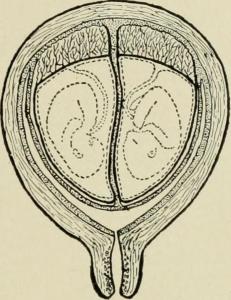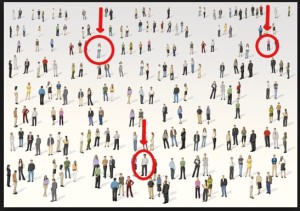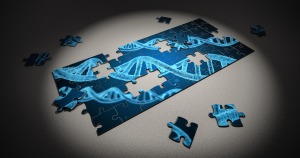 The Genetics Journal Club for this month features the article Molecular Support for Heterogonesis Resulting in Sesquizygotic Twinning that was recently published in the New England Journal of Medicine. The article describes boy-girl twins whose maternal DNA was identical, and who share paternal DNA as with genetic siblings. The authors propose that sesquizygosis is a newly identified and rare third type of twinning along with monozygotic (identical) and dizygotic (fraternal) twins . The article describes the authors' research to identify other pairs of sesquizygotic twins, a case report regarding this set of twins who are now four years old, and theories regarding how sesquizygosis occurs.
The Genetics Journal Club for this month features the article Molecular Support for Heterogonesis Resulting in Sesquizygotic Twinning that was recently published in the New England Journal of Medicine. The article describes boy-girl twins whose maternal DNA was identical, and who share paternal DNA as with genetic siblings. The authors propose that sesquizygosis is a newly identified and rare third type of twinning along with monozygotic (identical) and dizygotic (fraternal) twins . The article describes the authors' research to identify other pairs of sesquizygotic twins, a case report regarding this set of twins who are now four years old, and theories regarding how sesquizygosis occurs.
Explore additional genetics articles by searching Himmelfarb Library's PubMed which provides direct links to articles in our online collections.
Image citation: Anonymous (1922). Single ovum twins [online image] from Plass, E.D. (1922). Obstetrics for nurses. New York: Appleton and Company.

 DynaMed Plus
DynaMed Plus
 New research published in
New research published in  An article recently published in the
An article recently published in the  Can genetic information catch a killer? And, cost you your privacy?
Can genetic information catch a killer? And, cost you your privacy? As the Washington Capitals' winning record brings them closer to the Stanley Cup,
As the Washington Capitals' winning record brings them closer to the Stanley Cup,  In the recent NEJM essay
In the recent NEJM essay 